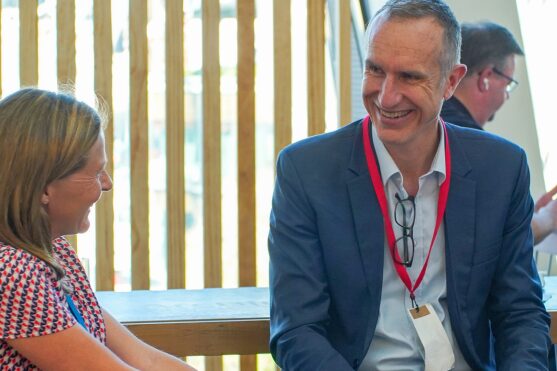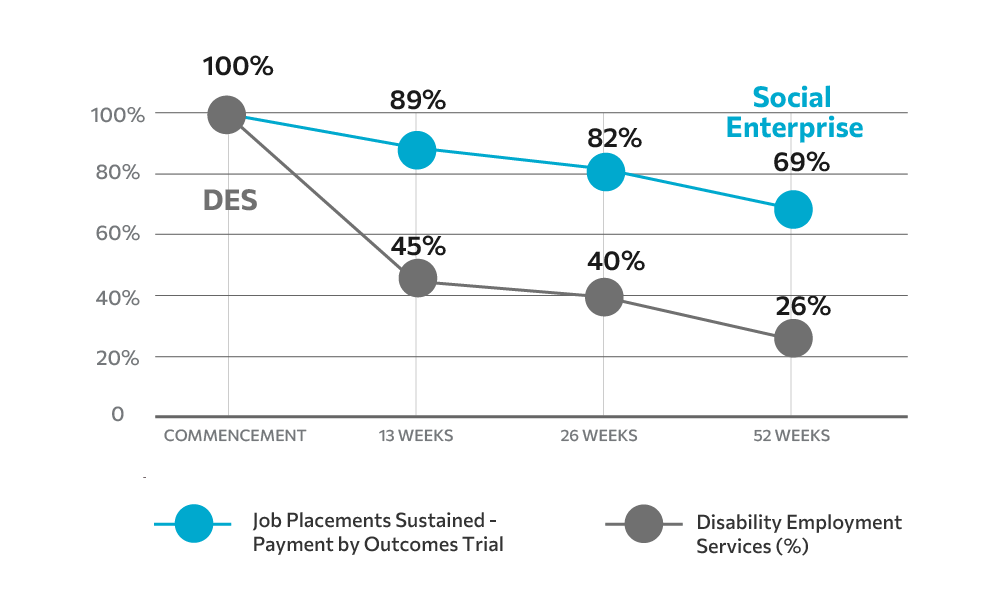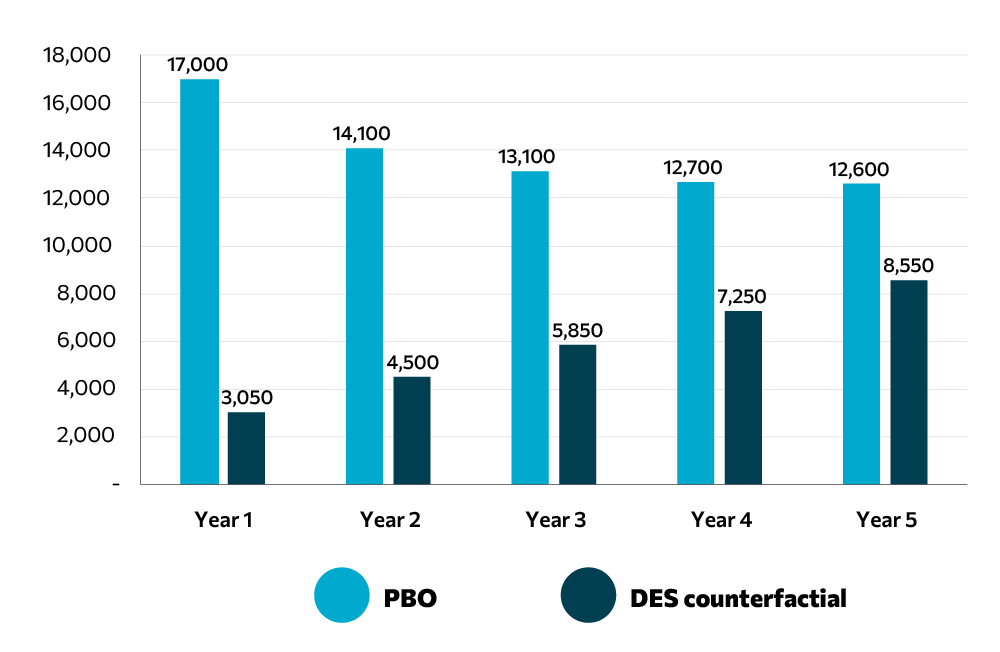Payment by Outcomes trial – social enterprises prove their worth

Long-term unemployed individuals are more likely to start work sooner, earn more and stay longer, if they are employed by a social enterprise, compared to those supported through Disability Employment Services, says a new report. White Box Enterprises has run an Australian-first Payment by Outcomes trial for jobs-focused social enterprises in partnership with the Department of Social Services. In this Q&A, White Box’s Chief Operating Officer Mark Daniels (pictured above right), who led the project, outlines the results.
1. How does the Payment by Outcomes (PBO) trial work and what are the objectives?
The PBO trial commenced in July 2022 and will run until March 2026. It is a partnership between the federal government and White Box, who has engaged 17 jobs-focused social enterprises from around Australia to employ a defined cohort of people with significant barriers to employment. The objective of the trial for White Box is to demonstrate the effectiveness of social enterprise in creating long term employment outcomes for individuals who face barriers to work. For government, it is to better understand how payment by outcomes programs operate and how they can be used to adopt innovative approaches to longstanding issues.
Through the trial social enterprises receive outcome payments when employee participants reach employment milestone at 6, 12 or 18 months. These payments are designed to cover the cost of the wrap-around supports social enterprises provide, which is the key differentiator between social enterprise employment and mainstream employment.
PBO Trial is unlike any other funding mechanism (tenders and grants) because the cost of the program only becomes crystal clear when it is completed. Government only pays on the outcome milestones achieved.
There are 132 participants in the PBO Trial and while it’s a small trial by government standards, the results it’s delivering are incredibly compelling.
2. White Box commissioned actuarial and analytics firm Taylor Fry to study the outcomes. What are the key findings in terms of financials and the benefits to individuals?
We engaged Taylor Fry to compare the findings of the PBO Trial with existing public data on Disability Employment Services (DES), which provides an ideal counterfactual for the PBO model. We are comparing the outcomes from the trial with the same cohort within DES, who are working with mainstream employers.
The report shows that previously long-term unemployed individuals stay in work longer with a social enterprise, earn more and start work sooner. Retention after 12 months is at 69%, compared to DES at 26%. Individuals are also likely to earn significantly more with average individual earnings at $17,000 in their first 12 months of social enterprise employment, well above the average income of $3,050 for DES participants in their first year, where employment rates are lower, and people are less likely to stay in a job.
The report also found social enterprise employment could return a 20% cost saving to government if the payment by outcomes (PBO) model was adopted more broadly.
It’s great to finally have evidence-backed data to demonstrate social enterprises make good financial sense. These purpose-built businesses are designed to support people with the greatest barriers to employment, the report shows the model works.

3. What is the significance of the findings ahead of the federal government’s overhaul of its national employment services system and launch of its own Outcomes Fund?
This report is incredibly timely. We know the federal government is aware of the benefits of social enterprise. In ‘Rebuilding Employment Services’, the report handed down from the Select Committee on Workforce Australia Employment Services, ‘social enterprise’ was referenced throughout as a model well suited for individuals who face the greatest barriers to employment. However, it’s yet to commit to any formal role for the sector in the employment services system.
The PBO Trial is a great demonstration model, and with the Outcomes Fund on the horizon, this is the perfect opportunity to test the outcomes-based funding approach more broadly. If more individuals experiencing long term unemployment could access work through a social enterprise, I’m certain there would be significant social and economic benefits for the government.
We’re not suggesting social enterprises are the solution for everyone. We just want to see them sitting alongside DES and Workforce Australia, as another option for those who need a level of support and flexibility that mainstream workplaces don’t provide.
4. Based on the sample in the report, can you paint a picture of the impact and savings to government that social enterprises could have at scale?
If scaled to 10K individuals, the payment by outcomes model could save the federal government an estimated $220M over five years, which is a great incentive to consider expanding the model to support other individuals beyond those in DES.
In the Workforce Australia report, the government is aware the current model doesn’t work for everyone. The report estimated that 10-20% of the caseload “would be better assisted through alternative services” – we believe social enterprise should be part of this solution.

5. What does it mean to have this sort of data in terms of attracting (government or private) investment in the future in this space? How far can social enterprises go – what’s your dream for the sector?
There is an abundance of research that demonstrates the positive impact social enterprise employment has on the individual, what makes this data set from Taylor Fry so special is that it also looks at the fiscal benefits. When you can see the social and financial returns social enterprise can offer, it’s hard to argue against the model.
The dream end goal would be an employment system where jobs-focused social enterprise is an option alongside a DES or Workforce Australia provider for anyone who is experiencing significant barriers to work. Where social enterprises are paid by government for the social benefits they provide, making them more financially robust and able to compete for contracts alongside other commercial businesses.
While we’re making progress with government, social enterprise still struggles to get buy-in from impact investment in Australia. White Box is continuing to find new and innovative ways to solve that problem too.
Read the full report online: Payment by Outcomes Trial | White Box Enterprises